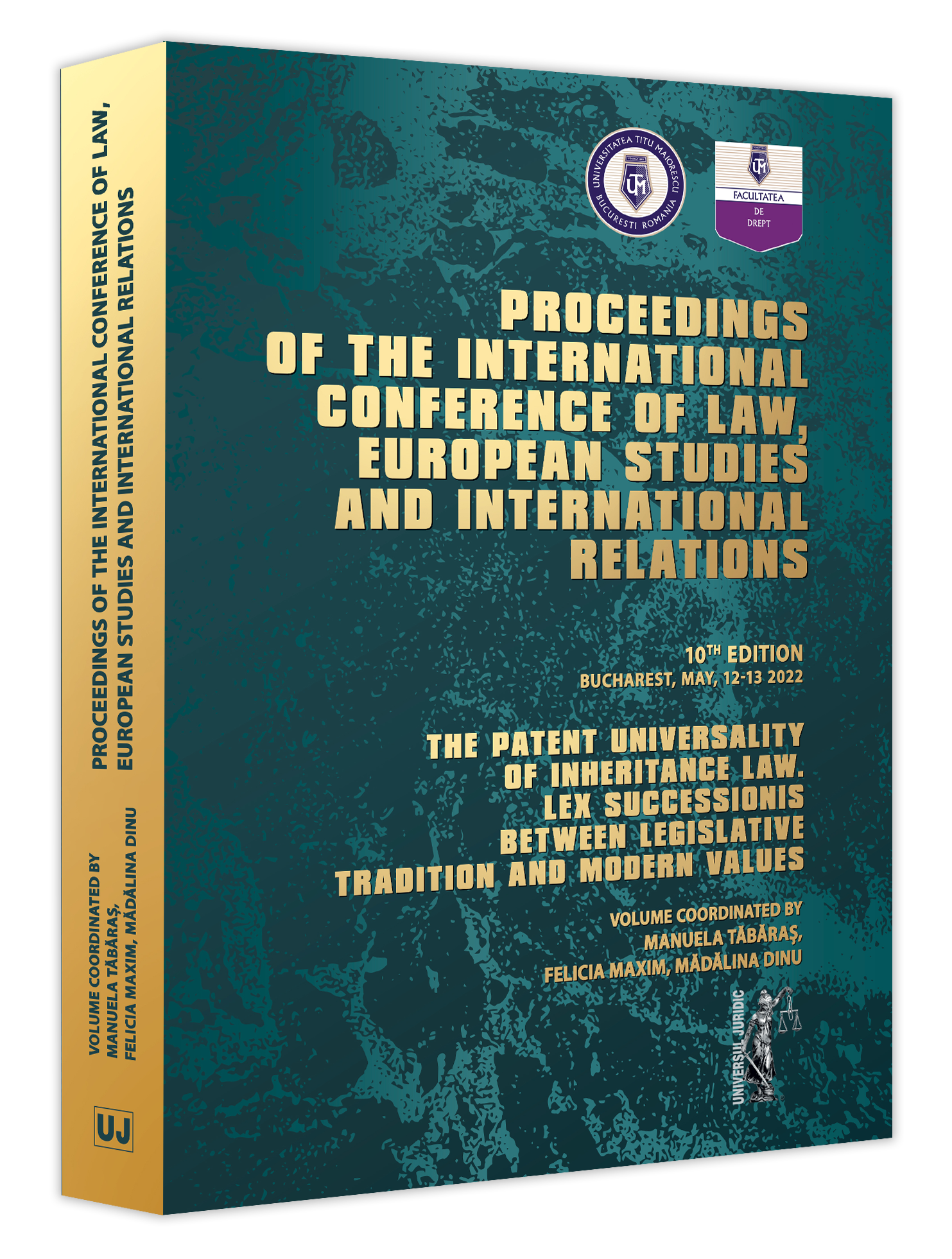THE SUCCESSION OF STATES TO INTERNATIONAL ORGANIZATIONS UNDER PUBLIC INTERNATIONAL LAW
THE SUCCESSION OF STATES TO INTERNATIONAL ORGANIZATIONS UNDER PUBLIC INTERNATIONAL LAW
Author(s): Titi SultanSubject(s): Law, Constitution, Jurisprudence, Constitutional Law, Civil Law, International Law, Public Law, International relations/trade
Published by: Editura Hamangiu S.R.L.
Keywords: international legal personality; state; international organizations; succession of states; diplomacy; dismemberment; status of the individual; other international entities;
Summary/Abstract: Diplomacy is a permanent negotiation, probing, a way of convenience in relations with the accrediting state or between states with a diversified development. It is the task of diplomats to best represent the mutual interests of the state they represent and of the state to which they are sent, which requires careful and constant information in order to act in accordance with them. From this perspective, participants in international legal relations have a decisive role to play in implementing the basic principles of diplomacy. In order to participate in international legal relations, it is necessary to be a subject of international law, which implies the ability to be the holder of international rights and obligations. A state acquires legal personality from the moment the constituent elements are assembled, provided that most of the consequences of the existence of its personality are subject to recognition in order to take effect from the date fixed by it. The conventional commitment to create a state in fact eliminates the need for recognition, but in this case the state does not exist until the date when its elements are assembled. The expression of the international legal personality is made in the context of the existence of international relations, of relations based on equality and in accordance with the international legal norms. International law is a system of legal rules of coordination, proper to a horizontally organized society. The international personality substantiates the position of the state within the international community. A State shall cease to exist from the date on which one of its constituent elements disappears and, as a result, its status as an international legal person is affected2. Also, a state ceases to be an international person in the event of a merger between two states or the annexation, following a war, the division of a state into several states or the separation from a state of parts that are annexed to the states neighbor. The changes that take place in the leadership of a state, of the dynasty, of the way of organizing the state or of its territory, do not affect the legal personality of the respective state. Among the changes affecting states as international legal entities are: the merger between two states3, the partial loss of independence. The international doctrine4 prevails from the point of view according to which in order for an entity to have a state-type legal personality, it is necessary to meet four elements: - the existence of a determined territory; - a permanent population (organized and with a considerable number of members); - a relatively stable government; - the ability to enter into relations with other states.
Journal: Conferința Internațională de Drept, Studii Europene și Relații Internaționale
- Issue Year: X/2022
- Issue No: X
- Page Range: 209-219
- Page Count: 11
- Language: English

